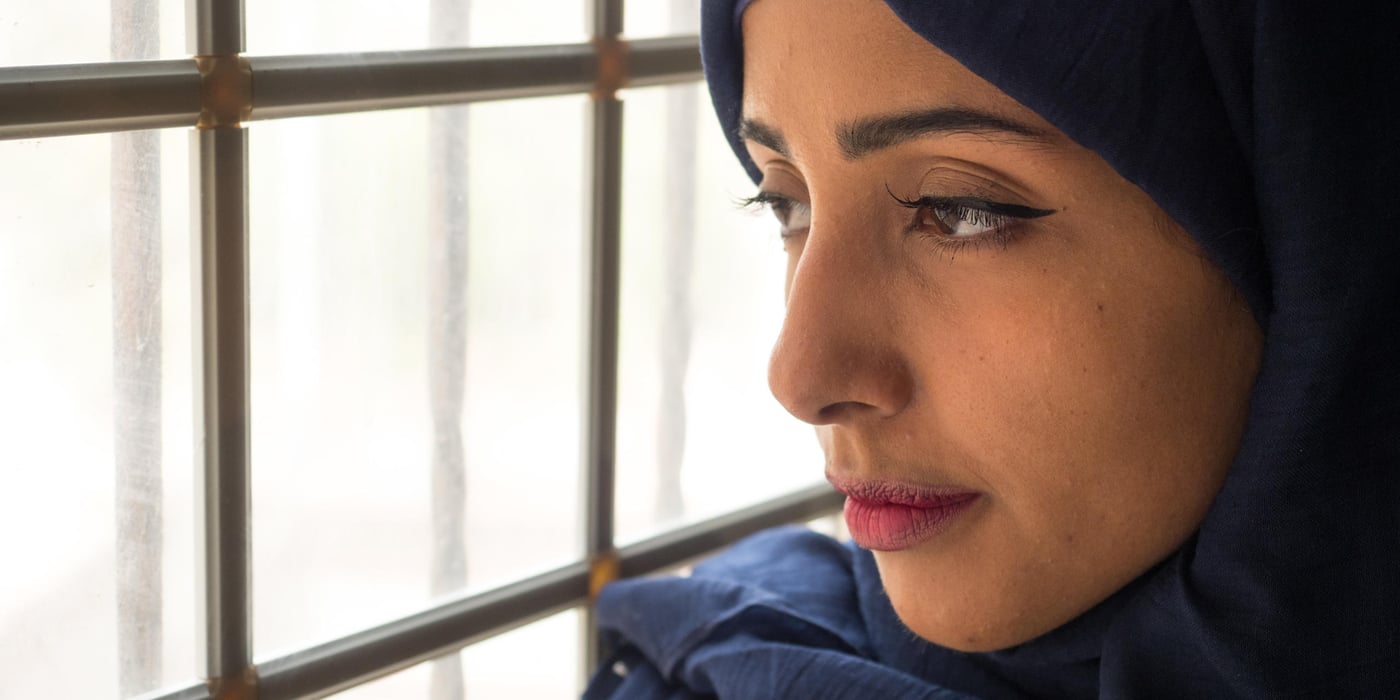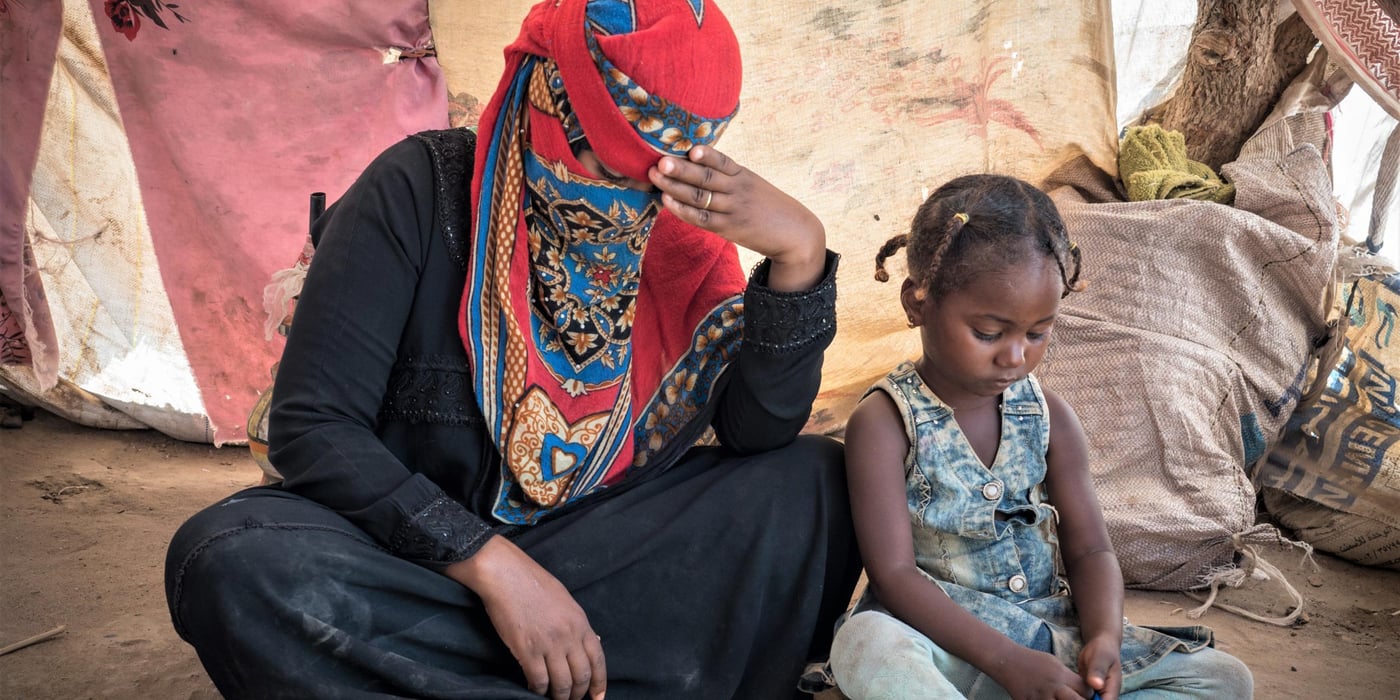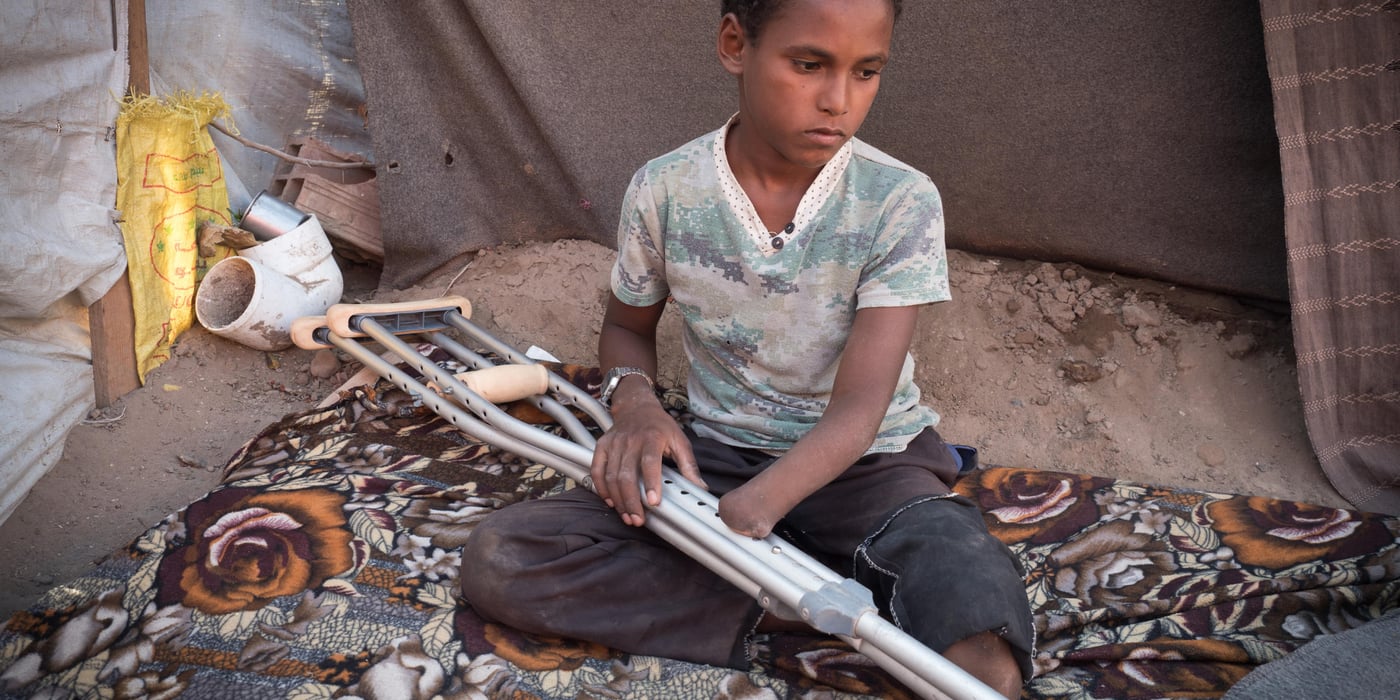
Det är varmt. Det är bara februari, men termometern visar uppåt 30 grader och solen steker genom det tjocka lagret av sand som har lagt sig i luften.
– Min dröm är att bli läkare, så att jag kan hjälpa människor. Men då behöver jag en bil, för det är väldigt jobbigt att gå.
Salah behöver kryckor för att komma runt, och det är extra tungt i hettan. Och det kommer snart att bli ännu varmare.
"Det här kriget är så orättvist. Människor dör. Mammor och pappor dör."Sarah, 13 år
En dag var han ute och vaktade fåren i dalen tillsammans med två kusiner. En av flickorna hittade något de trodde var resterna av en landmina, som de började leka med. Salah sparkade bort den. Då blev allt svart.
– Jag visste inte att den skulle explodera, säger han.
Salah skadades i magen och fick amputera en hand och ett ben. En av kusinerna förlorade en hand. Den andra dog.
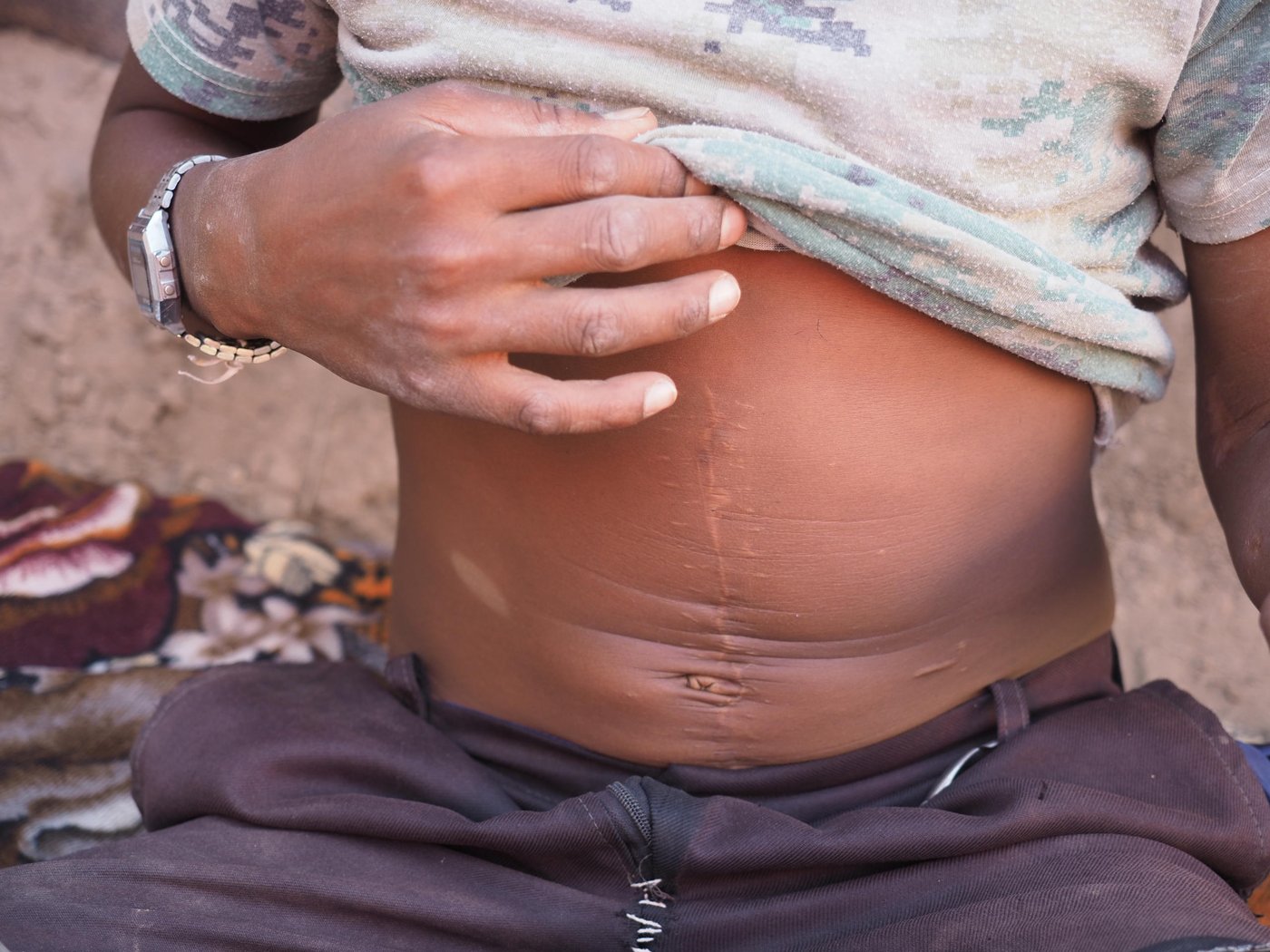
Efter en månad skrevs han ut från sjukhuset. Den dagen bestämde han sig för att fly från sin hemstad tillsammans med storasystern och hennes man. Föräldrarna ville inte lämna huset. De stannade kvar.
– Jag vill åka hem igen, men det finns så många odetonerade bomber och landminor där. Det känns inte säkert. Kanske exploderar de på mig igen.

Det är ett och ett halvt år sedan Salah, hans syster och svåger kom till flyktinglägret Al-Mishqafa. Salah bor i ett litet tält bredvid systern. Det var viktigt för Salah att hans syster och hennes make skulle få behålla sitt privatliv, så när familjen fick ett nytt tält från NRC i november skapade han sitt eget lilla hem under en presenning.
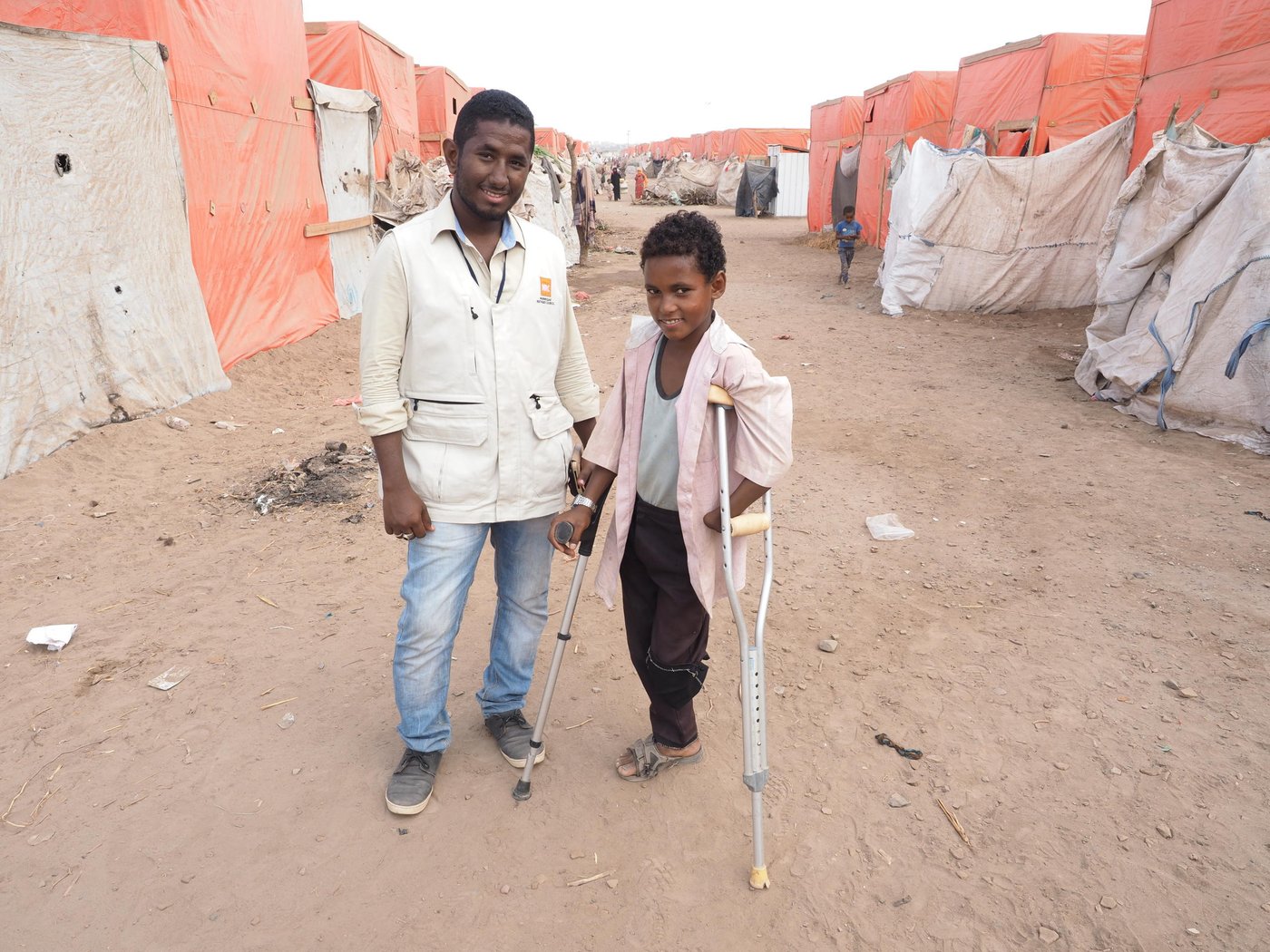
I lägret arbetar NRC för att bland annat ge människor tak över huvudet och bygga latriner. Men förhållandena är eländiga - det är trångt och lyhört mellan tälten. Det är varmt och dammigt. Det finns dessutom insekter, ormar och skorpioner.
Lägret saknar det mesta.
– Vi behöver mer mat, vatten, filtar, madrasser och bättre tält. Det här kriget är så orättvist. Människor dör. Mammor och pappor dör, säger Salah.
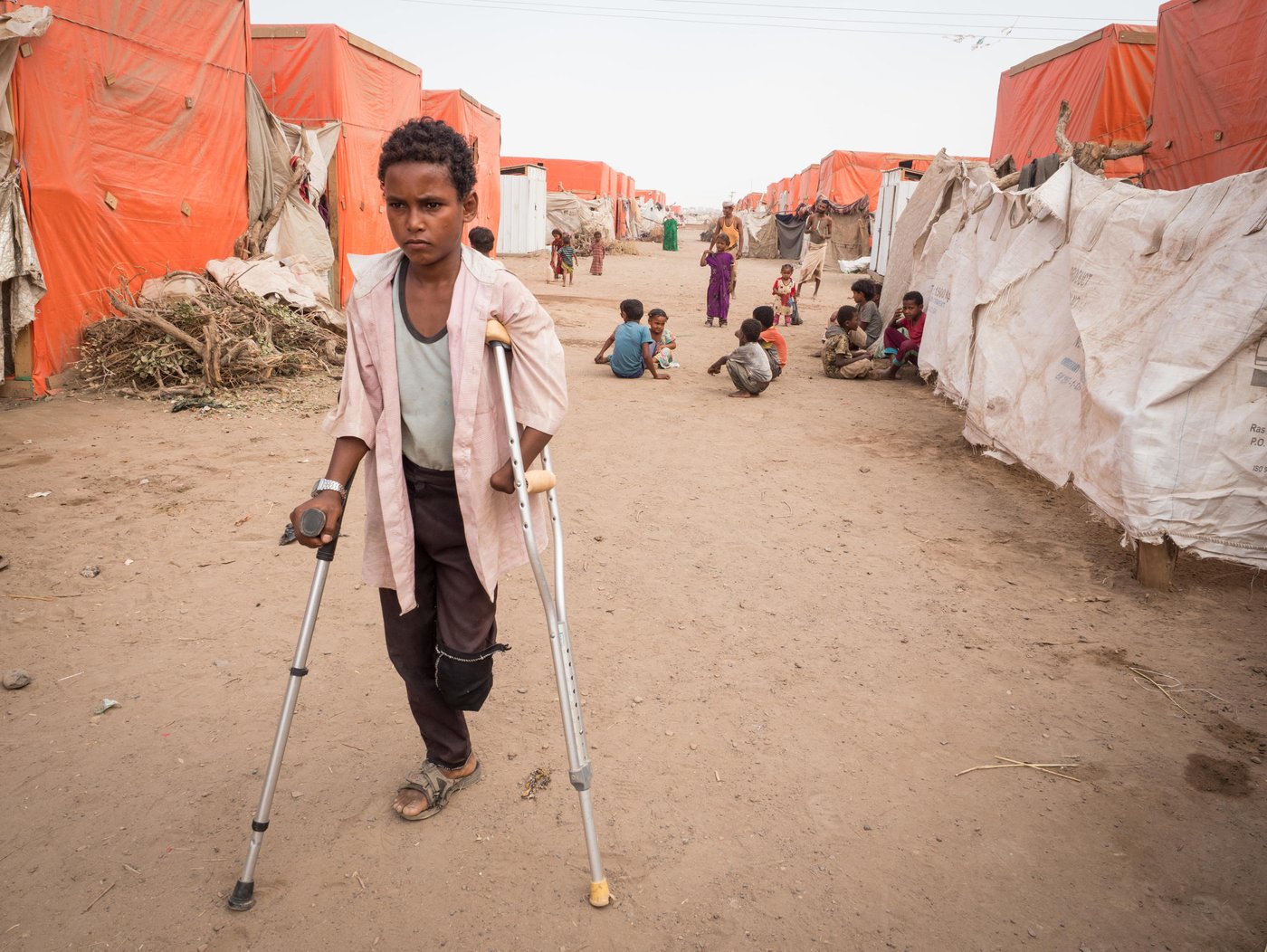
– Jag vill bara leva som andra barn. Nu är det svårt att leka. Jag vill bara leka som de andra.
Det hörs en tydlig längtan i hans röst, när han talar om de saker han aldrig kommer att kunna göra igen.
En av de saker Salah saknar mest är att spela fotboll - och att cykla.


![Yasin Ismail has been working for NRC for five years and believes NRC is one of the best organisation to work for. Yasin started working for NRC as an Education Assistant and is now an Education Coordinator at NRC's Aden area office.
Yasin believes education is a critical component of the work NRC does, because of its great impact on people’s lives. He recognises it as a basic human right, important to the development of children and youth to fulfill their potential, and critical to breaking the inter-generational cycle of poverty.
The impact of the conflict in Yemen has been catastrophic. Schools have been destroyed or occupied by armed groups or displaced populations, which have deprived children in some areas from accessing school for more than four years.
Children in Yemen are struggling to cope with the violence they have faced during the conflict, and continue to face imminent danger as conflict carries on and exposes them to UXOs, mines and crossfire.
Yasin believes the security situation, which results in restricted access and unpredictable funding for education, are two of the main challenges in his job. He said that affected communities need access to aid but will sometimes have challenges accessing this due to long delays at checkpoints or challenges reaching distribution sites.
Yasin wants to help and support those affected by war in Yemen and believes that we can change the world with education. “[We should] Always follow our dreams and believe in ourselves. For every ending - there is a new beginning, for every memory - there is a dream ahead.”
"I hope for peace and stability for our people and country. I hope for our children and youth to get quality education because that will help them to build their future. I believe the education is the only approach to protect future generations, because it gives people a chance for healthy development, restores a sense of normality, and provides important life skills. Further to that, an education intervention is an investment in the long-term future, and in the peace, stability and economic growth of Yemen”.
More information:
These kids, like many others, leave for school very early because it takes them an hour or as long as two hours for some to walk. Ensuring children have sufficient access to nutrition is very important for children expending huge amounts of energy on commuting, learning and playing, and ensures they are able to engage appropriately in class. Lialy was among the children without anything to eat before coming to school. NRC has started to provide high energy biscuits to children in Lialy's school, who expressed their happiness at receiving the biscuits. Several children mentioned feeling more energetic and active as a result, and said they could concentrate more in class.
Information about the school:
Al-Qadisia school is located in Al-Qubbiyta district in Lahj and was one of the first schools in which NRC has delivered programmes. NRC's team describe the AlQadisia as a normal school with an engaged community but experiencing problems including nearby landmines. As displaced families continue to move into the area, the number of students at the school continues to grow, creating overcrowding. NRC's programme is supporting rehabilitation of the school building, distribution of recreational, cleaning and scholastic materials, training of teachers and provision of high energy biscuits for students.
Education in Hard to Reach Areas:
One of NRC’s global priorities is to deliver aid and services to people in hard to reach areas. We worked with the Education Department to select this school and others identified as being among the most in need. In travelling to the school form NRC's office in Aden, staff encounter several checkpoints, threatened areas and landmines.
Our programming in Yemen's southern governorates reaches people in Lahj, Abyan and Al-Dalea, among other areas. Operating in these areas is complicated and challenging: our staff travel through checkpoints, some of which create traffic, preventing access to project sites. Several areas remain affected or threatened by conflict, explosions are often heard, landmines dot areas across Yemen and bureaucratic challenges delay or complicate processes.
Where mines explode, civilians can suffer on multiple levels as people cannot only sustain injuries, but lose mobility and access to fields and other sites used for cultivation.
Efforts should be made to call on the authorities and specialised organisations to strengthen demining operations and reduce the number of civilian casualties.
Photo: Ingrid Prestetun/NRC](/cdn-cgi/image/width=1400,format=auto,fit=crop,height=700/globalassets/sverige/yemen-31.jpg)
